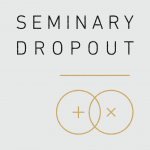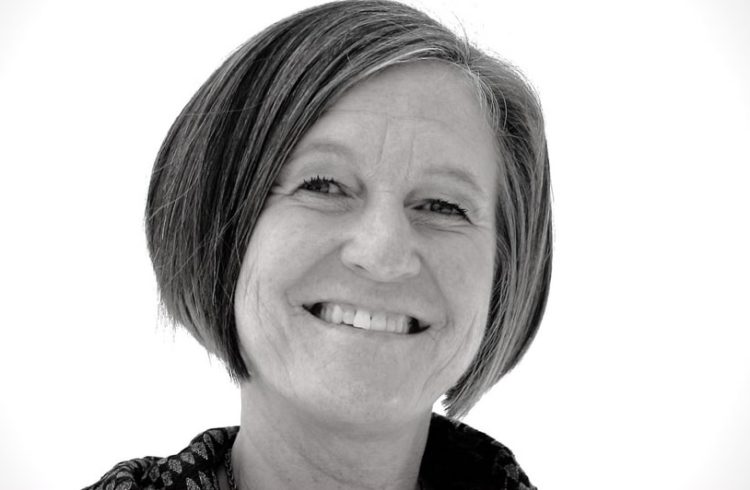
Sponsor a Child — At Compassion we take a committed, long-term approach to fighting child poverty. Our Holistic Child Development Model is made up of four comprehensive programs investing in children from the beginning of their lives until they’ve reached adulthood, and covering everything from prenatal care to university-level education.
This Week on Seminary Dropout…
With over 32 years of ministry experience, Jean serves as a missionary and coach as well as Five Stones Global’s Executive Director. She is the author of We Are Not the Hero: A Missionary’s Guide to Sharing Christ, Not a Culture of Dependency. Jean holds a B.A. in cross-cultural communications from North Central University, Minneapolis, MN, where she also taught as a missionary-in-residence from 2009-2012.
Upon completing her education, Jean worked as a church planter for six years living and serving among Cambodians in Minneapolis and St. Paul. Consecutively, Jean continued her work serving as a career missionary in Cambodia for sixteen years (1992-2009). Jean trained Cambodians through modeling and facilitating how to plant churches that have the vision, God-given authority, and capacity to plant others churches. Her vision for and practice of church planting is encompassed in the Cambodian proverb, “Enter a river where it bends; enter a country by its customs.”
At heart, Jean is a cross-cultural communicator who specializes in worldview strategic church planting, oral strategies, and on-the-job pastoral training. Jean’s current role at Five Stones Global reflects her tenured missionary experience. Jean teaches, coaches, and trains missionaries, pastors, church committees, organizations, and short-term mission teams on how to intentionally build-in sustainability, indigeneity, and multiplication in missions and disciple-making efforts throughout the world.
Drawing from her unique life experiences serving Cambodians both stateside and internationally, Jean invites you on a learning journey to discover ways to contribute to self-sustaining and reproducing church planting movements that are biblically rooted and culturally relevant. Presently, Jean makes her home in Minneapolis where she enjoys reading, writing, spending time with family and friends, walks in nature, biking, and ice cream.
While globalization gives North American Christians unprecedented opportunities to influence the world, we need to take care not to slip into a type of postmodern colonialism in which we make ourselves the experts or the ‘hero come to save the day.’ Jesus commanded us to make disciples of all nations, not to spread Western cultural Christianity or solve the world with American dollars.In We Are Not the Hero, the author invites you on a learning journey—through Cambodia and other parts of the world—to discover ways to contribute to self-sustaining and reproducing church movements that are organic to the culture.
If you are a student, missionary, church planter, missions-oriented church, or Great Commission-minded disciple you will find this book both inspirational and valuable to your experience. -From the Publisher
From the show…
“We ourselves don’t know what is culture and what is Gospel.” -Jean Johnson
If you liked this episode then you might also like…
Seminary Dropout 35: How to Alleviate Poverty Without Hurting the Poor & Yourself – Brian Fikkert
137: Chris Marlow, Author of ” Doing Good is Simple: Make a Difference Right Where You Are”




Missio Alliance Comment Policy
The Missio Alliance Writing Collectives exist as a ministry of writing to resource theological practitioners for mission. From our Leading Voices to our regular Writing Team and those invited to publish with us as Community Voices, we are creating a space for thoughtful engagement of critical issues and questions facing the North American Church in God’s mission. This sort of thoughtful engagement is something that we seek to engender not only in our publishing, but in conversations that unfold as a result in the comment section of our articles.
Unfortunately, because of the relational distance introduced by online communication, “thoughtful engagement” and “comment sections” seldom go hand in hand. At the same time, censorship of comments by those who disagree with points made by authors, whose anger or limited perspective taints their words, or who simply feel the need to express their own opinion on a topic without any meaningful engagement with the article or comment in question can mask an important window into the true state of Christian discourse. As such, Missio Alliance sets forth the following suggestions for those who wish to engage in conversation around our writing:
1. Seek to understand the author’s intent.
If you disagree with something the an author said, consider framing your response as, “I hear you as saying _________. Am I understanding you correctly? If so, here’s why I disagree. _____________.
2. Seek to make your own voice heard.
We deeply desire and value the voice and perspective of our readers. However you may react to an article we publish or a fellow commenter, we encourage you to set forth that reaction is the most constructive way possible. Use your voice and perspective to move conversation forward rather than shut it down.
3. Share your story.
One of our favorite tenants is that “an enemy is someone whose story we haven’t heard.” Very often disagreements and rants are the result of people talking past rather than to one another. Everyone’s perspective is intimately bound up with their own stories – their contexts and experiences. We encourage you to couch your comments in whatever aspect of your own story might help others understand where you are coming from.
In view of those suggestions for shaping conversation on our site and in an effort to curate a hospitable space of open conversation, Missio Alliance may delete comments and/or ban users who show no regard for constructive engagement, especially those whose comments are easily construed as trolling, threatening, or abusive.